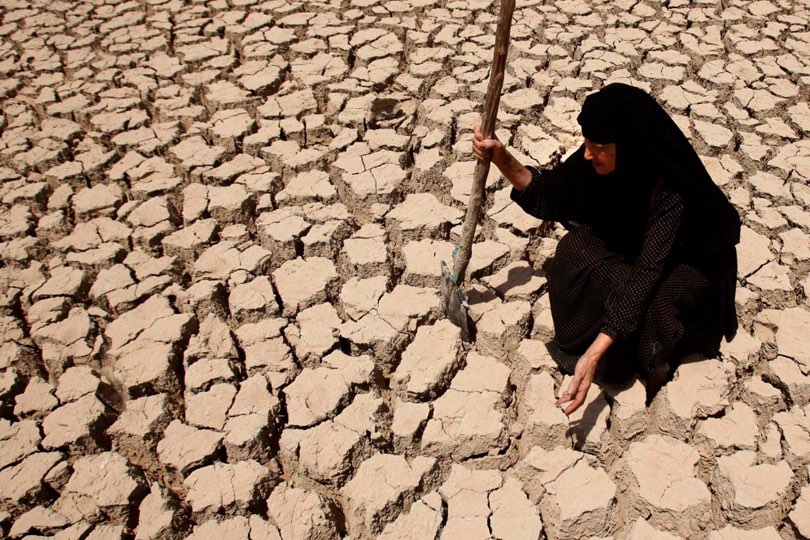As we have previously talked about in the past two parts about the definitions of food security and its meanings,
Matters that contribute to strengthening this matter, as well as the things that contributed to its arrival to the bottom,
Especially in Iraq.
As for our conversation today, it is related to three main axes which food security in the country as a whole is based on.
Which is :
The food gap represents the difference between the quantities produced locally and the quantities needed for local consumption,
That is, in the case of Iraq, it means the difference between what the country can produce of the food items and what is sufficient
For the basic needs to provide food for the entire population.As for Iraq, the country suffers from a severe deterioration
In the current production capacity that does not cover consumer needs, this situation calls for resorting to importing most
Of the basic food commodities in large quantities , and of course when the rate of consumption growth exceeds the double the
Rate of growth of agricultural production, the volume of food imports must rise in order to bridge the food gap,Or reduce it,
And this is undoubtedly required, as the widening of the food gap and lack of control over it results in negative effects not
Only on the economic level of the country, but even on the political and security level.
Since the seventies of the last century, Iraq has been suffering from a food gap represented by the production of strategic basic
Commodities such as grains, oils, sugar and dairy products due to the increasing demand for them with the continuous rise of the
Population.
Iraq possesses natural resources that will reduce this gap to reasonable limits,
And of course because of the wars and conflicts that It passed through the country,
No real system was provided that works to properly fill this gap.
Second: Self-sufficiency
The self-sufficiency rate has deteriorated in the past two decades, until it has now reached a very critical stage,
As Iraq is now an importer of food such as grains, in addition to many other food products, and the deterioration of
Self-sufficiency rates is a threat to food security, which is one of the basic components of national security.
Self-sufficiency is one of the most important issues closely related to the security situation of the country and
The successful management of its resources, and Iraq has been missing these two matters since the beginning of the new millennium.
In order to achieve sufficiency, it is necessary to achieve the most important things of social safety nets, family organization,
Education, abundance of agricultural production, and livelihoods in the countryside,
In addition to the political factors that play a major role in food security in Iraq, all of them are important and essential in Iraq,
As is the case in most developing countries, and unfortunately today, and in the shadow of what Iraq is experiencing
In terms of political, economic and security reality, achieving these matters is an almost impossible task.
Third: the ration card
There is no doubt that the ration card and its concept is one of the good policies that have been adopted for the benefit of the Iraqi citizen,
But contrary to what the majority of people expect, it is not the best form to achieve the concept of food security, but rather is considered a
Temporary and prosthetic solution to reach the concept of food security.
Third: the ration card
There is no doubt that the ration card and its concept is one of the good policies that have been adopted for the benefit of the Iraqi citizen,
But contrary to what the majority of people expect, it is not the best form to achieve the concept of food security, but rather is considered a
Temporary and Restorative solution to reach the concept of food security.
A real example of this is the recommendation of the FAO, which states: “The Member States that
It allocates 10% of its annual budget for agricultural production, as it will be able to achieve food security. ”This explains the size of the
Huge gap in the decisions followed in Iraq for the issue of food security compared to international standards. For comparison only, the 2011
Budget allocations for the agricultural and water resources sectors in Iraq are Less than two percent (2%), which is less than the global average
In developing countries of five percent (5%).
Therefore, here we do not deny the role of the ration card, its importance and the fact that the citizen needs it, but it is really a call for awakening
In the matter of the citizen’s food security and coming up with actual and real solutions that are at least a guarantee for future generations.
Food security is a permanent state that is achieved when all citizens at all times obtain their food needs in order to lead a decent life.
To confirm the aforementioned examples, we present to you a comparison table between 1960 and 2018 in terms of budget, population, GDP, and imports.
(1960 year)
956,000 sheep
1550,000 million cows
857 thousand tons of wheat
34,000 tons of beef
380000 thousand tons of dates
46,000 thousand hectares of arable land
20,000,000 million goats
(Year 2018)
650,000 million sheep
1898,000 million cows
290,000 million tons of wheat
17,000 tons of beef
635,000 thousand tons of dates
5,000 hectares of arable land
130,000,000 million goats
In conclusion, all of the above is addressed to all Iraqi citizens,
To acquaint them with the reality of what is happening and the danger of its continuation, which threatens the existence of an
Entire country and portends a disaster that threatens entire generations .
* It is strictly forbidden to use the information and the studies contained on this site, except with prior permission from the administration and the authors Thualfuqar center.

